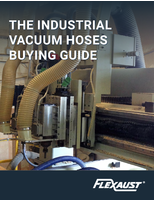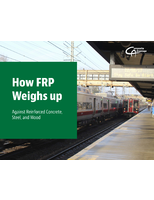Collapsible Container is suited for meat industry.
Share:
Press Release Summary:
Reusable SmartCrate 3513-11 is designed for shipping bone-in-loin pork and beef primal meat cuts. Hand-held product provides cooling, product protection, minimized solid waste, and product tracking. Ventilated, fold-out walls allow access to meat contents without having to lift containers. Cross-stacking design features lock container layers together for stable pallet loads, while bottom design allows corners of container to sit flush on pallet.
Original Press Release:
Innovative IPL Container Saves Money on Shipping While Offering Better Cooling of Meat Enroute to Case-Ready Meat Plants
SmartCrate 3513-11 is meat industry's first collapsible container
Worcester, MASS., June XX, 2003 - A collapsible, reusable container designed specifically for shipping bone-in-loin pork and beef primal meat cuts from primal source plants to case-ready plants is now available from IPL, it was announced today.
The IPL SmartCrate 3513-11, the first hand-held collapsible container for the meat industry, is designed to provide more rapid cooling, better product protection, less solid waste, reduced handling labor and better product tracking than one-time use containers for primal cuts of beef and pork. This is an extension of IPL's proprietary line of SmartCrate collapsible containers, which feature an intuitive 2-step assembly for ease of use in manual or automated operations.
"Meat is an excellent application for reusable containers," emphasized Eric Fredrickson, sales and marketing manager, IPL Material Handling. "The high, year-round volume and limited shelf life of meat products drive high turnover of containers, and high turnover results in increased return on investment. In addition, reusable containers provide better cooling and product protection. Together, the increased ROI, quicker cooling, and improved product protection result in substantial savings for both the meat industry and retailers."
The adoption of reusables in the meat industry is on the rise due to changes in the supply chain. The industry is currently developing case-ready meat plants for preparation and shipment of retail cuts to grocery/retail chains, reducing the role of the traditional in-store butcher. A driving factor behind reducing or eliminating in-store butchering is the industry's desire to better control the preparation and packaging of meats, including the use of modified atmosphere (MAP) packaging. By preparing meat at case-ready plants, retailers can lessen their losses due to spoilage, ultimately saving money. However, they have been lacking a cost-effective container that provides adequate product cooling and protection for shipment of primal cuts to the case-ready plants.
The reusable containers currently available on the market are not suited for the primal bone-in-loin cut, one of the common cuts sent to case-ready meat plants. The cut is typically 32 to 34 inches long and about six inches in diameter. The industry has been reluctant to adopt reusable containers because plants would have to maintain two systems: corrugated containers for the bone-in-loin, and reusables for other cuts of meat.
Collapsible container offers improved cooling, reduced shipping costs, and improved worker safety
The ability to collapse the IPL container results in key benefits including optimum space utilization, reduced shipping costs, and improved worker safety.
o SmartCrates can be collapsed when empty, significantly reducing return freight costs. The return ratio is 5.5 collapsed containers for every 1 set up container (5.5:1).
o Thin, ventilated walls dramatically increase heat transfer from the meat, reducing cool down times, and increasing the shelf life of the meat.
o Worker injuries can be reduced by fold-out walls that allow access to meal contents without lifting of heavy containers.
o Reduced ribbing and increased radii allow for much greater clean-ability than previous collapsible RPC designs. Also, the container can be cleaned when it is in the erect position, or all walls of the container can be folded outward for thorough cleaning of all surfaces.
o Cross-stacking design features reduce or eliminate the need for secondary packaging by locking container layers together for more stable pallet loads.
o Vertical walls eliminate stacking load on meat and increase product protection. A unique bottom design allows the corners of the container to sit flush on the pallet, further increasing stacking strength.
o Bale bars extend across the top of the container and are secured at both ends for significant additional strengthening. When not in use, the bale bars, which are permanently attached to opposing walls, fold down in a recessed slot.
o Compatibility with Radio Frequency Identification (RFID) technology and state-of-the-art tracking enables better tracking.
In addition, the IPL container meets existing standards. The SmartCrate allows users to place the same number of cuts (four) in a container, and to put the same number of containers per layer on a standard 48" x 40" GMA pallet as before, thus requiring as few changes as possible in the existing system.
About IPL
IPL is a North American injection molding and extrusion product leader. It was the first injection molder in North America to earn ISO 9001 quality certification. It achieved QS 9000 certification in 1998. The company's headquarters are in St. Damien, Quebec. Total sales for fiscal 2001-2002 were a record $206 million (CND) servicing the material handling, custom molding, packaging, and environmental markets. For more information, visit the company's Web site at www.ipl-mh.com




